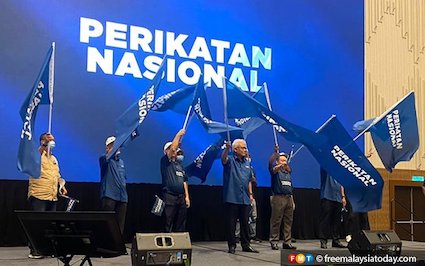Civil society ‘muted’ in PN’s first year, says rights report

A report has found that strict laws and their implementation during the first year of Perikatan Nasional’s rule have continued to muffle the voices of civil society.
(FMT) – Prepared by rights groups Article 19 and Civicus, it said the Muyhiddin Yassin-led government had failed to repeal or reform laws that restricted freedom of expression and peaceful assembly and association, and had instead taken action against government critics, activists and journalists.
“The PN government has been extremely secretive about its legislative agenda but has been crystal clear about its intention to continue using repressive laws to target critics and dissenters,” said Nalini Elumalai, Article 19’s Malaysia programme officer.
“A healthy environment for public discourse cannot be achieved until dissenting and unpopular opinions are respected and protected instead of being silenced.”
The report cited 66 instances in PN’s first year where people were investigated or charged under the Sedition Act 1948 or Communications and Multimedia Act 1998, and said it illustrated the government’s willingness to crack down on dissenting voices.
“In many of these cases, the accused were human rights defenders or civil society leaders,” it said.
It also lamented the shortcomings of the Peaceful Assembly Act, which denies children and non-citizens the right to peacefully protest and does not allow for spontaneous demonstrations, which the report said “falls short of international law and standards”.
The Societies Act, it said, had continued to stand in the way of enjoyment of the right to freedom of association, as shown by the barriers faced by opposition parties Pejuang and Muda in attempting to get officially registered “compared with the quick registration of PN itself”.
The report also described the action taken against news portals like Malaysiakini, which was recently fined RM500,000 for contempt of court, and Al Jazeera, which was investigated for reporting on migrants during the pandemic, as examples of “limits placed on press freedom”.
It also cited instances of the media being barred from covering court proceedings and the restriction of access to parliamentary sittings to select news outlets.
The groups urged the government to undertake comprehensive legislative and institutional reform to correct the shortcomings, and ensure the process is transparent and inclusive of civil society.

